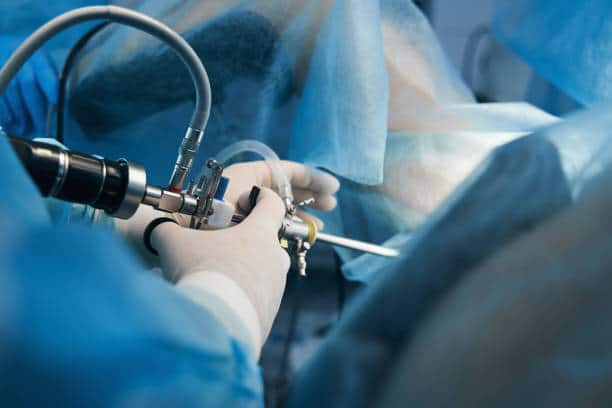1120 NW 14th Street / Miami, FL 33136

Minimal Invasive Spine Surgery: Treatment Cost & Recovery | A Guide
It is a surgical approach in which specialized equipment is used and smaller incisions are made to treat spinal conditions without damaging the surrounding healthy tissues and improving recovery. Unlike traditional open surgeries, minimally invasive spine surgery (MISS) offers numerous benefits, such as reduced pain, less scarring, small incisions, and faster recovery.What are the Common Types of MISS procedures?
Here are some common types of MISS, which include:- Spinal Fusion
- Foraminotomy
- Laminectomy
- Decompression Procedures
- Discectomy
- Vertebroplasty and Kyphoplasty
- Transforaminal Lumbar Interbody Fusion (TLIF)
- Posterior Lumbar Interbody Fusion (PLIF)
Common Conditions Treated with MISS
A variety of spine conditions can be treated by minimally invasive spine surgery, including the following conditions:- Scoliosis
- Spondylolisthesis
- Spinal Tumors
- Spinal Stenosis
- Herniated Discs
- Spinal Fractures
- Degenerative disc disease
- Infections and other spinal deformities
Benefits of Minimally Invasive Spine Surgery
There are numerous benefits of minimally invasive spine surgery; some of the key benefits include the following: Smaller Incisions and Less Tissue Damage: In MISS, smaller incisions of a few millimeters are made, which results in less tissue damage and quicker recovery. Improved Results: Smaller incisions lead to less noticeable scarring as compared to traditional surgeries. Reduced Dependency on Pain Medication: With reduced tissue damage and smaller incisions, patients typically require less post-operative medication. Less Pain & Quicker Recovery: After surgery, less pain is often experienced by patients because of less tissue damage and smaller incisions, which also result in shorter hospital stay time and earlier returns to normal activities. Reduced Risk of Complications: The risk of infection and other complications is significantly reduced because of the reduced tissue exposure and smaller incisions. It also results in reduced blood loss during the procedure.Define the Surgical Process & What to Expect
The procedure begins with a thorough evaluation, which includes physical tests, medical history, and imaging tests such as MRI or CT scans. If the condition requires surgery, Dr. Burks develops a personalized surgical plan to meet the needs of the patient.During the procedure:
- General anesthesia is typically given to the patient
- To insert a tubular retractor, small incisions are made
- A camera and cutting-edge instruments are used to perform the surgery
- Precision is ensured through real-time imaging
- Lastly, incisions are closed
Recovery After Minimally Invasive Spine Surgery
After surgery, the recovery of most of the patients is typically faster & smoother as compared to traditional open surgery, in which large incisions are made that take more time to recover. Patients might experience pain after surgery, which can be managed through proper postoperative care and medication. Physical therapy often begins within days or weeks to strengthen the muscles and improve mobility. You can:- Resume light activities within 2 to 4 weeks
- Within 4 to 6 weeks, patients return to their normal daily life activities
- Complete recovery will take around 3 months or less
Cost of Minimally Invasive Spine Surgery
The cost of minimally invasive spine surgery (MISS) varies depending on numerous factors, but the average cost may range from around $15,000 to $35,000. However, minimally invasive surgeries are often less expensive than traditional surgeries because of the shorter hospital stay and quicker recovery time.Factors influencing the cost:
- Type of Procedure
- Hospital/Venue
- Location
- Surgeon Fees
- Complications and Recovery
- Insurance Coverage
Why Choose Dr. Shelby Burks for Minimal Invasive Spine Surgery?
With extensive experience and expertise, Dr. Shelby Burks is a recognized neurosurgeon who has performed numerous minimally invasive spine surgeries with better outcomes. He is a highly skilled surgeon who takes proper time to effectively diagnose the spine condition and provide personalized treatment plans with quality post-operative medical care. Some major reasons to choose Dr. Burks for minimally invasive spine surgery:- Advanced surgical expertise
- Patient-first approach and follow-up care
- High success rate and satisfied patients
- Focus on minimally invasive techniques

